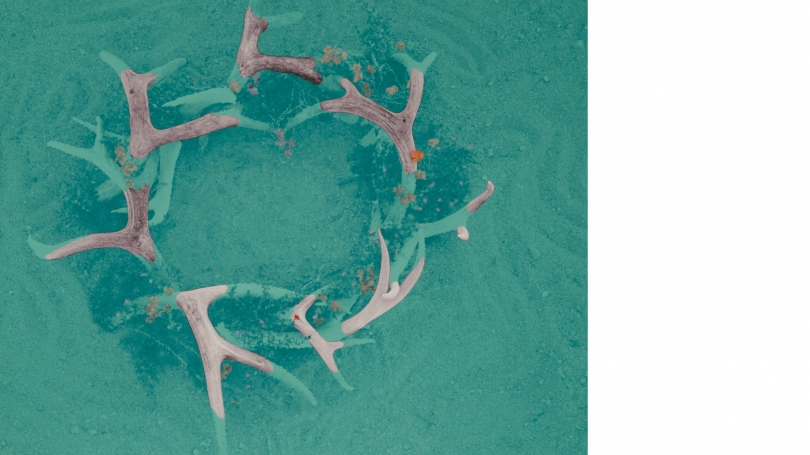Victor Masayesva Jr., who grew up on a Hopi Reservation in Hotevilla, Arizona, incorporates Hopi symbolism into his photography to depict the ruptured balance between humans and nature. Using antlers, flower petals, feathers, snake skins, cornstalks, and bones as visual metaphors for the cycle of life and death, Masayesva juxtaposes the destruction of humans, animals, land, and spirit against the reality of regeneration, life, and beauty in the southwestern landscape.
The Hood's new acquisition, Ground Zero, which is part of Masayesva's larger series of digital and hand-painted photographs called Nuclear Reservations, explores apocalyptic visions of universal concern seen through the lens of Hopi cosmology and its connection to the land. Masayesva describes Ground Zero as "a submerged atoll, an atomic test," directly connecting the ecosystem of a tropical island with the planet itself, where damage to one part will inevitably impact the rest. In the photograph Masayesva links the threat of nuclear annihilation with natural disasters such as great storms and unpredictable weather patterns to comment on the role of global affronts in human and environmental destruction.
